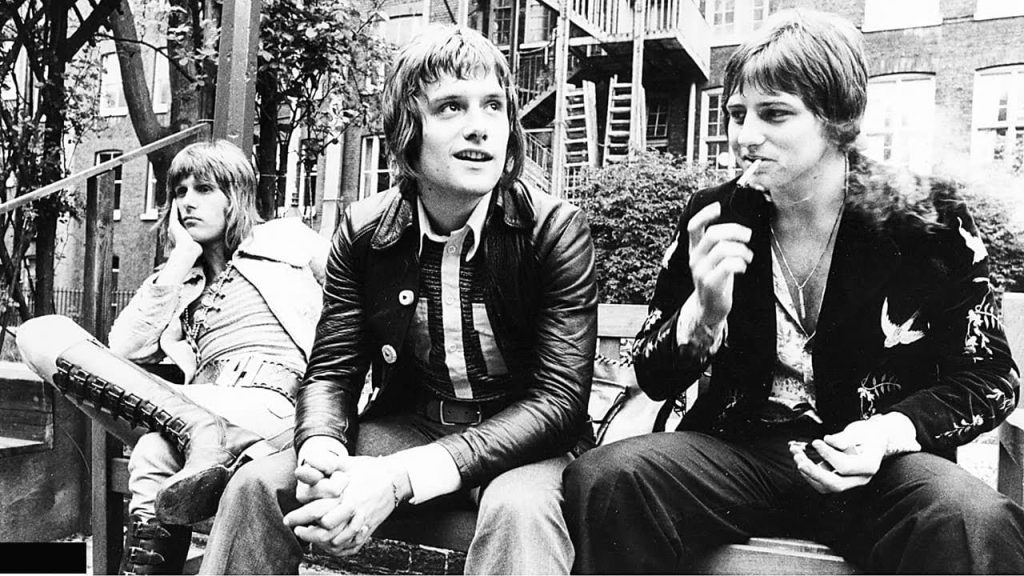
A Ballad of Fortune and Fate
In the rich tapestry of progressive rock, few songs resonate with the poignant simplicity and depth of “Lucky Man” by Emerson, Lake & Palmer. Featured on their 1970 self-titled debut album, this track stands as a testament to the band’s versatility and the timeless storytelling of Greg Lake.
The origins of “Lucky Man” are as humble as they are remarkable. At the tender age of 12, Greg Lake penned this ballad, his first foray into songwriting. Armed with a newly acquired guitar, he wove a tale that would, years later, become emblematic of ELP’s musical legacy. The song’s journey to the album was serendipitous; as the band sought to complete their debut record, Lake introduced “Lucky Man” during a studio session. Despite initial reservations about its fit within the album’s progressive framework, the track was embraced and recorded, capturing a raw and authentic essence.
“Lucky Man” narrates the life of a man adorned with wealth and accolades, yet ultimately succumbing to the indiscriminate hand of fate. The juxtaposition of opulent imagery—white horses, satin-clad ladies, and golden beds—with the stark reality of mortality serves as a poignant commentary on the ephemeral nature of material success. The chorus, with its melancholic refrain, underscores the irony of the protagonist’s perceived fortune.
A defining feature of the song is the groundbreaking Moog synthesizer solo by Keith Emerson. Recorded in a single, inspired take, this solo stands as one of the earliest instances of the Moog being prominently featured in rock music. Its ethereal and haunting tones elevate the track, adding a layer of modernity to the acoustic foundation laid by Lake. This fusion of classical instrumentation with avant-garde technology exemplifies ELP’s innovative spirit and has left an indelible mark on the genre.
Upon its release, “Lucky Man” garnered significant attention, charting in multiple countries. In the United States, it reached number 48 on the Billboard Hot 100 in March 1971, marking the band’s debut on the American charts. The song’s success was not confined to the U.S.; it also resonated with audiences in Canada and the Netherlands, where it secured positions within the top 20. The track’s enduring appeal led to a re-release in 1973, further cementing its status as a classic.
Beyond its commercial achievements, “Lucky Man” has been lauded for its lyrical depth and musical innovation. The song delves into themes of destiny, the fleeting nature of wealth, and the universal quest for meaning beyond material possessions. Its narrative invites listeners to reflect on the true essence of luck and the factors that shape our lives. The haunting conclusion, marked by Emerson’s Moog solo, leaves an enduring impression, prompting introspection long after the final note fades.
For many, “Lucky Man” serves as a nostalgic bridge to the early 1970s, evoking memories of a transformative era in music. Its blend of folk-inspired melodies with progressive experimentation captures a moment when artists dared to push boundaries and explore new sonic landscapes. The song’s legacy endures, influencing successive generations of musicians and listeners alike.
In essence, “Lucky Man” transcends its era, offering a timeless exploration of human experience. Through its masterful storytelling and innovative composition, Emerson, Lake & Palmer crafted a piece that continues to resonate, reminding us of the delicate balance between fortune and fate.
For those wishing to revisit this classic or experience it anew, “Lucky Man” is available on various music platforms. Its enduring legacy serves as a testament to the band’s artistry and the song’s universal themes.